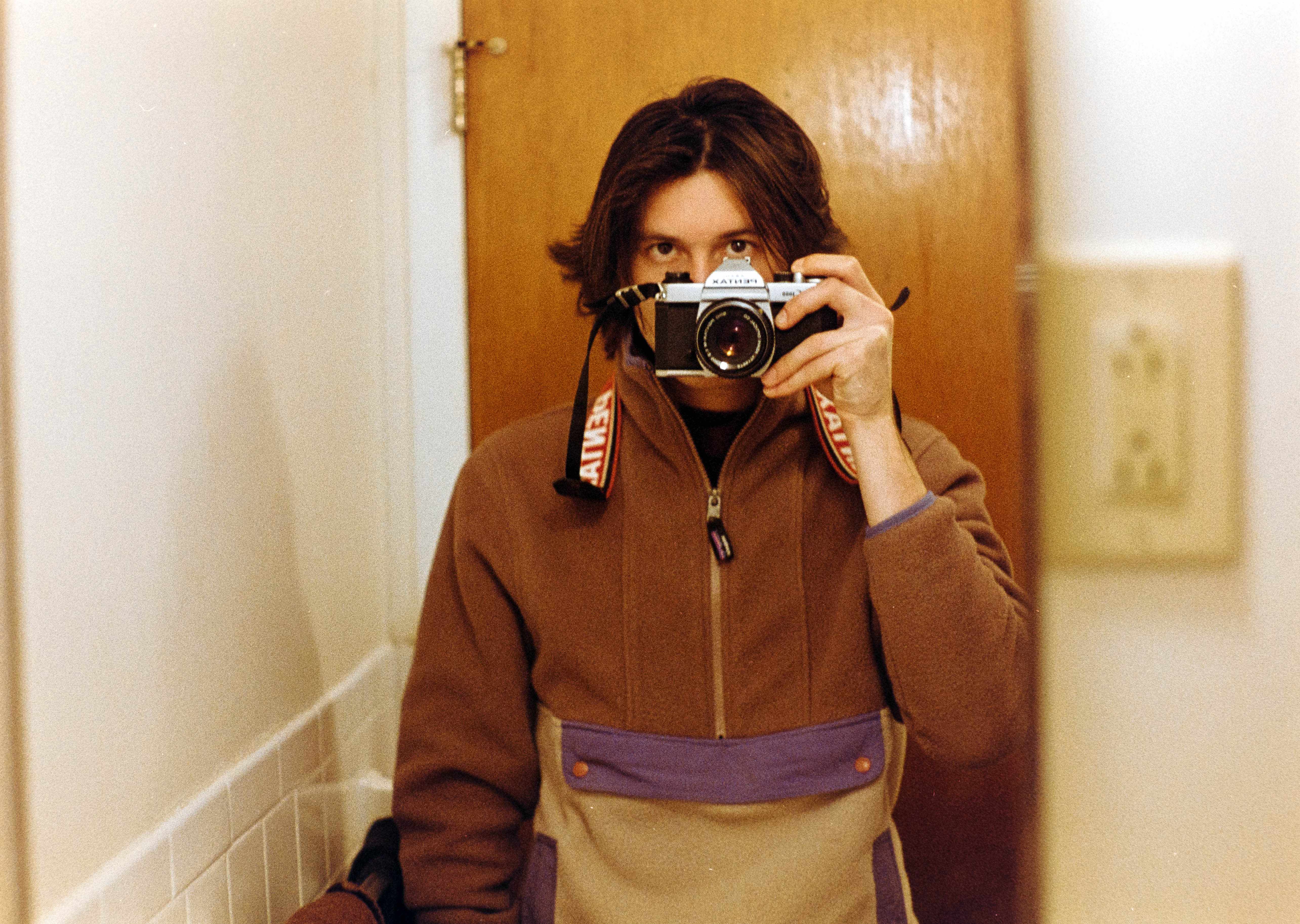Been seeing a lot about how the government passes shitty laws, lot of mass shootings and expensive asf health care. I come from a developing nation and we were always told how America is great and whatnot. Are all states is America bad ?
America is harder to live in the poorer you are, and it’s on a steeper scale than in other industrialized nations because there are fewer and less robust social services, especially health and child care, and declines in union membership have paired with a rapid increase in wealth inequality that is forcing the shrinking middle class downward and stomping on the poor even harder.
You can live a comfortable life (for now…) if you are firmly middle class and up. Your higher salary than your counterparts in Europe is eaten away at by higher costs, and you deal with risks that they don’t in the form of transportation being car dominated (more accidents and less walking exercise) easy access to guns (the most dangerous being the one in your own home, to you) and less strict food safety laws. Compared to those in Eastern Europe, however, your likelihood of suffering from a foreign attack is drastically lower, not that it was ever very high to begin with.
One thing that Americans take pride in (and rightly, mind you) and full advantage of is our First Amendment right to not have our speech be curtailed, so a large amount of the bitching about America, and especially in English, is Americans bitching about America(ns). So there’s a cultural element to it that may or may not exceed the truth.
I would also add that the capitalist class loves to promote the idea if America as the greatest nation on earth because that storyline benefits them. They’ve already won the game and are benefiting from our current system. They don’t want it to change.
If we admit we have shortcomings–large gap in wealth equality, lack of accessible and affordible health services, piss poor public transportation, unaffordable child care paired with living costs so large 2 incomes are required, poor school funding, pervasive gun violence, and Policing that emphasizes violence, just to name a few-- then we are also acknowedging that we have to change things. Why would those who greatly benefit from our current system want change?
a large amount of the bitching about America, and especially in English, is Americans bitching about America(ns).
Absolutely.
J.J. McCullough did a really good video about this fact, I’d definitely recommend it. https://www.youtube.com/watch?v=iCVQKD3jH2M&ab_channel=J.J.McCullough
Fantastic video. J.J. completely nails it on multiple topics.
Why are there “removed” words in your comment?

I have heard lemmy.ml blocks curse words. My account is on lemmy.world and I see no removeds.
Quite ironic.
Poetic really. A meme is born.
You can’t be serious. I am using lemmy.ml.
Can you see the word “bitch”?
If you’re saying “the B word,” then no, I can’t.

The lemmy.ml server even rejected a post I attempted that addressed this:

I can’t upload another photo, because Connect says that the image service is “down,” but it rejects with “error: slurs”
Anyway, this is my last post here. It’s been fun, lemmy.ml.
Not removed for me.

Maybe you have a potty mouth blocking Greasemonkey script or something.
Oh right, I had heard about that: there’s a filter. I’m not sure what instance it’s on and what words it filters, though.
I was using the verb version of a word for a female dog.
It’s lemmy.ml and saying bitch is not allowed. I don’t need a nanny instance.
And certainly not one where you can’t even have a proper discussion about dogs.
less strict food safety laws
I mean, you can’t even make cheese with raw milk in America, but other than that
It varies from person to person and place to place. But generally, I would say that America is a pretty good place, but not perfect and has a lot of room for improvement.
Yes, healthcare is expensive, but we have some government programs to provide cheaper care for certain groups, like the very poor, the elderly, and veterans.
Violence varies from place to place, but I feel like I live in a safe area, and I have never seen or heard a gun fired at someone in a public place.
A lot of the bad laws typically involve disenfranchising certain minority groups. I am lucky enough to not be affected by most of this, and a lot of people are fighting back against it by trying to vote in better politicians.
I have never seen or heard a gun fired at someone in a public place
Feels weird you have to specify “at someone” and “in a public place”. I’ve never heard a gun fired outside of firing ranges (EU)
Live in a suburban area. Several of my neighbors have 5+ acres of land. One of them has a makeshift range, so I hear someone shooting all the time, sometimes for hours on end day after day. I’m not thrilled by it.
Your neighbor must be rich.
Them being loaded in more ways than one doesn’t make me feel any better about it. This coming from a gun owning liberal. I don’t just go around shooting it off in my back yard several times a week.
This would cover things like hunting and/or target practice at a home or private property, so not entirely that weird.
American here. Lived in California most of my life just outside LA in suburbs. Ventura as well. Lived in Tennessee for 2 years and Idaho 2. I’ve seen people open carry a few times. I own a gun and I’ve never seen or heard a gun fired outside of a gun range. I’m 40 btw. It’s not that bad here. It’s big and there are a lot of people so the news has tons of opportunities to present the worst of humanity which makes up a small percentage.
There’s also the fact that US media wants to show this bad stuff because it helps keep people afraid of the world around them and makes them easier to manipulate.
I live in a small city about an hour away from a major city. I’m also an hour away from what I would call the boonies – rural, remote areas where owning guns and open carrying is normal. In fact, I’ve seen open carry around here, in the city, quite a bit. It’s pretty normal around here.
I heard a shooting happen in the suburbs near my house when I was a kid. It’s what’s considered the “nice” part of town. An old woman walking her dog was killed. I heard the shot through my bedroom window. Only til I moved into the inner part of the city did I witness guns being shot in the city more often. Most of the times you hear pops, it’s fireworks. A couple times, it’s been guns. Those couple times are pretty freaky.
Every once in awhile I’ll walk past a crime scene downtown, usually something happened like a stabbing the night before. One day I scrolled through reddit and saw a video – a point-blank execution had occured outside the club down the road. That one was disturbing. I think the kid is going to jail for a long time.
The inner part of this particular city is not as safe as the suburbs, but for the most part you should be okay, as long as you’re not looking to start trouble. When I’m walking around town, especially the immediate area I live, my eyes are open. At night, they’re wide open.
tl;dr It used to be a hell of a lot better.
As Kochevnik81 wrote 10 months ago:
I just wanted to speak a bit towards that website. I think that specifically what it is trying to argue (with extremely varying degrees of good arguments) is that all these social and economic changes can be traced back to the United States ending gold convertibility in 1971. I say the arguments are of extremely varying degrees because as has been pointed out here, some things like crime are trends that stretched back into the 1960s, some things like deregulation more properly start around the 1980s, and even something like inflation is complicated by the fact that it was already rising in the 1960s, and was drastically impacted by things like the 1973 and 1979 Oil Shocks.
The decision on August 15, 1971 is often referred to in this context as removing the US dollar from the gold standard, and that’s true to a certain extent, but a very specific one. It was the end of the Bretton Woods system, which had been established in 1944, with 44 countries among the Allied powers being the original participants. This system essentially created a network of fixed exchange rates between currencies, with member currencies pegged to the dollar and allowed a 1% variation from those pegs. The US dollar in turn was pegged to $35 per gold ounce. At the time the US owned something like 80% of the world’s gold reserves (today it’s a little over 25%).
The mechanics of this system meant that other countries essentially were tying their monetary policies to US monetary policy (as well as exchange rate policy obviously, which often meant that US exports were privileged over other countries’). The very long and short is that domestic US government spending plus the high costs of the Vietnam War meant that the US massively increased the supply of dollars in this fixed system, which meant that for other countries, the US dollar was overvalued compared to its fixed price in gold. Since US dollars were convertible to gold, these other countries decided to cash out, meaning that the US gold reserves decreased basically by half in the decade leading up to 1971. This just wasn’t sustainable - there were runs on the dollar as foreign exchange markets expected that eventually it would have to be devalued against gold.
This all meant that after two days of meeting with Treasury Secretary John Connally and Budget Director George Schultz (but noticeably not Secretary of State William Rogers nor Presidential Advisor Henry Kissinger), President Richard Nixon ordered a sweeping “New Economic Policy” on August 15, 1971, stating:
““We must create more and better jobs; we must stop the rise in the cost of living [note: the domestic annual inflation rate had already risen from under 2% in the early 1960s to almost 6% in the late 1960s]; we must protect the dollar from the attacks of international money speculators.””
To this effect, Nixon requested tax cuts, ordered a 90-day price and wage freeze, a 10% tariff on imports (which was to encourage US trading partners to revalue their own currencies to the favor of US exports), and a suspension on the convertibility of US dollars to gold. The impact was an international shock, but a group of G-10 countries agreed to new fixed exchange rates against a devalued dollar ($38 to the gold ounce) in the December 1971 Smithsonian Agreement. Speculators in forex markets however kept trying to push foreign currencies up to their upper limits against the dollar, and the US unilaterally devalued the dollar in February 1973 to $42 to the gold ounce. By later in the year, the major world currencies had moved to floating exchange rates, ie rates set by forex markets and not by pegs, and in October the (unrelated, but massively important) oil shock hit.
So what 1971 meant: it was the end of US dollar convertability to gold, ie the US “temporarily” suspended payments of gold to other countries that wanted to exchange their dollars for it. What it didn’t mean: it wasn’t the end of the gold standard for private US citizens, which had effectively ended in 1933 (and for good measure, the exchange of silver for US silver certificates had ended in the 1960s). It also wasn’t really the end of the pegged rates of the Bretton Woods system, which hobbled on for almost two more years. It also wasn’t the cause of inflation, which had been rising in the 1960s, and would be massively influenced by the 1970s energy crisis, which sadly needs less explaining in 2022 than it would have just a few years ago.
It also really doesn’t have much to do with social factors like rising crime rates, or female participation in the workforce. And it deceptively doesn’t really have anything to do with trends like the US trade deficit or increases in income disparity, where the changes more obviously happen around 1980.
Also, just to draw out the 1973 Oil Shock a little more - a lot of the trends around economic stagnation, price inflation, and falls in productivity really are from this, not the 1971-1973 forex devaluations, although as mentioned the strain and collapse of Bretton Woods meant that US exports were less competitive than they had been previously. But the post 1945 world economy had been predicated on being fueled by cheap oil, and this pretty much ended overnight in October 1973: even when adjusted for inflation, the price essentially immediately tripled that month, and then doubled again in 1979. The fact that the economies of the postwar industrial world had been built around this cheap oil essentially meant that without major changes, industrial economies were vastly more expensive in their output (ie, productivity massively suffered), and many of the changes to make industries competitive meant long term moves towards things like automation or relocating to countries with cheaper input costs, which hurt industrial areas in North America and Western Europe (the Eastern Bloc, with its fossil fuel subsidies to its heavy industries, avoided this until the 1990s, when it hit even faster and harder).
" I know the gold standard is not generally regarded as a good thing among mainstream economists,"
I just want to be clear here that no serious economist considers a gold standard a good thing. This is one of the few areas where there is near universal agreement among economists. The opinion of economists on the gold standard is effectively the equivalent of biologists’ opinions on intelligent design.
Hey, thanks for the post. Interesting. I didn’t even realize that the website was anti-going off the gold standard. I just really focused on the increasing wealth inequality and that bummed me out.
They explain exactly what the site was created for, though the post was not present 10 months ago. I’m not sure if I know enough about economics to understand whether they believe what Kochevnik81 was guessing they believe, that the getting off the good standard was bad for the economy.
https://wtf1971.com/2023/03/21/reader-qa-why-did-you-create-wtfhappendin1971/
What drove you to create the site? What has been the most surprising outcome?
The inspiration for creating the website was born out of pragmatism. That is to say, the data was collected with the a priori assumption that abandoning the Bretton Woods agreement lent an unprecedented and unaccountable agency to nation states (particularly the United States thanks to the US dollar’s position as a global reserve currency) in their ability to expand money and credit.
The Austrian position upon which our a priori assumptions are based is as follows:
- That expansion of money and credit sends artificial signals to the market which breed malinvestment leading to an ultimate deflationary credit & money contraction when the malinvestment liquidates(Austrian business cycle theory).
- Nation States (and particularly the United States) have an unfair advantage over capital markets in their ability to unilaterally capture seigniorage through the issue of new currency while simultaneously debasing the real value of their debt and liabilities as the nominal supply of money increases.
- Point 2 leads to a top down redistribution of productive capital accumulated by private industry to the public sector which is often redirected to frivolous and/or unprofitable ventures.
The pragmatic usefulness of the website (for me personally) was merely having the data all in one place where I could simply refer a person to the data to quickly and easily demonstrate the many downstream effects of fiscal and monetary expansion (as based on the Austrian positions I outlined above).
The idea to turn it into a meme rather than a financial blog (or something of that kind) was born out of a desire to foster a reaction of socratic self discovery in the viewer. It is far more important to me that the viewer walk away with the right question rather than with what I believe is the right answer…What the F*** happened in 1971?
I have never had just pure data make me sad so quickly.
Jeez… What did happen? The Nixon Shock / Bretton Woods?
This is why Trump should get elected so he can Make America Great Again, right guys?
But in all seriousness, I imagine it’s a case of that America is nowhere near as good as some Americans make it out to be, but it’s also not as terrible as the media make it out to be either. You can probably apply this to most of the Western World, really.
The US is also extremely huge geographically. Towns are different from each other, and states and just general locations can be different from each other. There is no one place you can say “is America”. Hell, you can have a peaceful family friendly neighborhood, and the next street over could be a drugs and violence.
I agree the media absolutely makes it seem worse than it is. Especially with all the 24/7 news and fear mongering to grab attention.
You got me at first!! Hovering over that down arrow hahaha
I have very mixed feelings about Trump. Obviously, he really isn’t good for any country, so I hope he doesn’t get re-elected. Just throw him in the jail already. Unfortunately, I can’t deny the fact that on some sick and twisted schadenfreude way I also enjoyed watching the first four seasons of the Shitshow. Oh, what a rollercoaster that was.
The US healthcare system is actually even worse than people think. Employers use it to hold power over us all, and even if you have insurance the prices of everything are extremely inflated (my dad went in for back surgery and the total was $47k usd, but get this, one of the items was a single bag of saline solution----$270!), and many people including myself can’t afford health insurance at all so I’m 1 accident or illness away from total financial ruin.
I genuinely love America and the place where I live. There is a lot to like and there are many places where life is much harder, but the US health system is one of those things that is embarrassingly bad and honestly just scary.
That’s because American health insurance is not really insurance it’s a discount plan. Any of you remember being forced to sell those overpriced coupon books as fundraisers in school? That’s what American health insurance is. It’s a shitty discount plan/coupon book that you are forced into buying from your employer and the plan itself makes sure you pay as much out of pocket as they can legally get away with.
At least the coupon book is for products with real prices. Healthcare is a total scam with prices based on who is paying. The entire system is corrupt from top to bottom. The US problem is extreme systemic corruption. It is not individual corruption outside of the billionaire supreme court judges level, it is corporate sponsored corruption on a much larger scale.
The USA has a tenth of the laws and protections of any other western country. We have had nearly 50 years of a political denial of service attack from a right wing campaign of misdirection and distraction politics. No one can institute reasonable laws and protections when they are constantly battling whatever stupid inflammatory nonsense that hits the congressional floor. This is why the nonsense keeps happening. It is because it controls the conversation. The only purpose is to keep as many loopholes as possible open for the parasitic worthless billionaires that are funding it. The only fix is to force out the billionaires. The only way to accrue billions of dollars is by exploitation and criminal activity. There are no exceptions to this rule. Every billionaire is a criminal evading prosecution.
No, despite what always online Europeans who have never visited will like to tell you. We’re just very big and very vocal, so you hear about us all the time. Bad news spread faster then good news. Are you going to be reading news about how good our tap water is, our public restrooms always available, boring stuff like that? Probably not! But that’s stuff you’ll notice if you do actually visit. We also are much more friendly and welcoming then other countries. We’re also tend to be less racist because we vocally talk about our racial problems rather then sweep it under the rug and pretend it doesn’t exist. I’m sure I’ll get downvoted by some people who don’t like to hear that, but they won’t be able to refute.
Edit: Why is everything America related online swarmed with Europeans trying to shit on it. It’s so exhausting and extremely pretentious. No wonder people have a distorted view of it online.
deleted by creator
How many other countries have you been to?
Our tap water is in crisis. What hasn’t been privatized is either being operated with outdated technology, or being polluted, and EPA protections are being weakened by the Supreme Court.
And, in most of America there aren’t freely available public restrooms. They are all located in businesses that will outright deny you access, or force you to make a purchase. Their policies allow them to discriminate against the unhoused, and the disabled.
I am an American, but I’m not going into I get into the broader discussion here, just had to respond to your two points, as they don’t seem grounded in reality.
Walk around in a major city and you’ll notice there are outright no bathrooms available to the public, or paying customers only.
I guess the one argument for “public restrooms” is rest areas along major highways and restrooms in public (usually national or state, not little municipal) parks.
So we do have public restrooms…they’re just nowhere near 99% of the population most of the time.
At least we don’t have to tip someone to get a square of paper lol
deleted by creator
In fact you can look into why that is as they tend to not remain open long when public restrooms were built.
You just walk into a starbucks or a gas station. They’re all in businesses, but saying you have to make a purchase is straight up false.
Even when you CAN do this, it’s usually because the employees are either kind enough or inattentive enough to let you do this. And if you are clearly unhoused or poor, your chances of being able to do this are much, much lower than if you can fit in in a middle class white area. (Restaurants with predominantly poor clientele or many homeless people nearby tend to be much stricter about this.)
Starbucks is iffy but I’ve traveled nearly every state and never once have I been to a gas station that required a purchase to use the restroom.
Here’s what everyone isn’t getting.
Public bathrooms are accessible to those that contribute to society.
Not saying this is right, it’s just how it is. Even places that have a “purchase policy” don’t care, the policy only exists to keep problems to a minimum and is usually only enforced against those that look like they might cause problems.
YOU have never been TOLD a gas station bathroom required a purchase. Likely because you pulled up in a vehicle and look normal enough. But I’m willing to bet money if you wander up on foot and look homeless you’ll find out they actually do have that policy.
I’ve been on all sides of this. As the strung out homeless kid that just wanted a quiet warm “nice” place to do my drugs. Then the struggling young adult having to wash blood, hair and literal shit off every surface in there. And then the manager having to enforce these policies because if I don’t my employees (or myself) have to go deal with whatever problems are created in the bathroom (and the WILL be a mess to clean up 98% of the time).
In Switzerland, you have to pay $2 to use the restroom in gas station. But I totally prefer using those compared to the sanity standard of your average american gas station. I can be picky.
Fair enough, gas station bathrooms in the states range from really good to don’t fucking touch anything.
deleted by creator
That depends on the state/municipality. In my hometown there were zero public bathrooms available. That’s since changed because only really wealthy boomers can afford homes there so more businesses have them.
A good way to get an impression about real america as an outsider is to follow smaller hobbyist YouTubers from middle sized towns. One guy from Michigan I follow has a remarkable boring life that’s completely different from every American stereotype.
Michigan poisoned an entire mid sized city. Its the home of mercenary leader Erik Prince. His sister is married to Dick Devos who runs the largest pyramid scheme in the world. There are Dow Chemical dump sites all over the state leaking heavy metals into waterways. Jeffrey Epstein got his start at Interlochen Arts Academy, the highschool had a dormitory named after him for years.
As an European, I was tempted to downvote you. But not because your very valid points but because you started your whole speech by stating defensively that only people who never been to the US tell bad stuff about America, that’s unfair.
I have relatives in the US and I’ve been there for several occasions. Except the midwest and Texas, I’ve been in most of the States and, it’s true, America is like 50 different countries.
But on average, what I can say is that I love interacting with Americans, speaking with them it’s like talking with some old friends, even in NYC (known by other Americans for being very un-american) I found friendlier people than in my home country. Kind of ironic that the only bad chats with Americans happened online.
I’ll skip about the tap water, it’s probably excellent, but to me born and raised in Switzerland, it always tasted like bleach, probably because of the added fluorine, I don’t know. It’s still better than tap water in UK, Turkey and half Europe and by far safer than most of Asia and Africa.
Finally, visiting America as a tourist is great, and I dreamed of living there as a child, but as an adult, I feel safer and more taken care in Europe, both from a healthcare point and from labour safety. But I live in a privileged country, if I lived anywhere else in the world, I would still chase the “American dream”.
What really saddens me about America, while the people are great, the nature is amazing and the spaces are immense, is that is governed by corporations and bribes and make shows like House of Cards a documentary.
Furthermore, what part of the country are you living in that leads you to believe we are less racist than other countries!? Our racism has defined our country ever since it was created.
Seriously, I am curious what part of the country you live in? It is sheltered from most American realities
If you think I’m denying racism, you read that comment incredibly wrong. I’m saying in comparison to other coutnries.
Your point was that we’re better because we talk about it.
All over the country legislatures are banning books, and curriculums that even mention racism. It isn’t an isolated incident either.
I agree with you on the exaggeration of racism.
I don’t think you bring valid points to why the United States are better than portrayed, but nonetheless believe so myself.
deleted by creator
I look asian. I experienced more racism traveling through Europe for 6 weeks than I have living 15 years in the US (primarily Atlanta and Jacksonville).
deleted by creator
There’s a lot of Americans who aren’t having a great time here. I don’t think negative commentary about the US is one hundred percent Europeans’ fault. Nor is it just that we’re “vocal” about things, which is really a positive since it’s the only way to create change anyway.
For example. I just saw a local news story that cops in a major SoCal city are arresting/citing/fining people for just…being homeless. They want them to go to shelters, but they admittedly don’t create enough shelter space. So it just becomes illegal for certain people to exist. The city gets pissy and aggressive about homelessness being a problem, when they’re the ones who created it and are the ones who refuse to fix it. Sure, give a homeless person a record so that it’s even harder for them to get jobs and approved for an apartment, and then fine them knowing they can’t pay it, resulting in doubling late fees that put them in debt. Sounds they really care about fixing the issue, great fucking job. But think about that - it’s against the law, it’s a crime, to not have a mortgage or rent payment. I’ve been hassled by cops for sitting in my own car in a grocery store parking lot. There is no public space. You have to buy something to be allowed to exist outside of a park, and in coastal places like SoCal, you have to pay to be in those too. And yes this was in one city, but it’s applicable to almost every major city in the US, even if there’s some variations in local laws. It’s just an example of how disposable human beings are here. The minute we don’t have labor to sell, the minute we stop consuming, we’re thrown the fuck away. And that’s not just an economic issue, it’s a cultural issue as well.
Was there, several times, all corners. Sorry to tell you, but your tap water smells like chlorine.
I’ve lived in several states and visited over 20. LA has the worst tap water, but most places are pretty good. Larger cities tend to taste worse than medium cities and rural places.
Grew up on rural well water. Tastes great, a bit hard. Now I drink Hetch Hetchy’s finest. Tastes pretty good. (My grandma’s water was another story.)
We have one federal government, yes, but painting all of the US with the same brush is naive at best.
That isn’t true everywhere but absolutely is true in some locales.
Same, I’m used to Swiss tap water (I know, sounds like cheating) and the water in America always smells like bleach. You have to get used to it, it’s probably because of the added fluorine. It’s still safe to drink. Can’t say the same in other countries around the world. Even in Germany and Italy, that’s Europe, you should avoid drinking from the tap.
It’s quite safe to drink from the tap in Germany.
In houses, yes. But public fountains I’ve found in Germany have often the sign Kein Drinkwasser on them. Meanwhile in Switzerland, almost every public fountain is 100% safe to drink.
Things maybe have changed in the recent years, I see you’re on a German instance and I guess you’re German, so I trust your statement more than mine as a foreigner.
no it doesn’t lol
It does, but you might not notice it since you’re exposed to the smell/taste all the time. But go abroad to Europe or some other place that doesn’t use chlorine for drinkwater treatment and you’d be surprised when you get back how noticeable it is.
I’d say it’s hit or miss on tap water. Depends where you live and how the utilities company handles their water purification. Take Flint, MI for example.
Tell me you’ve never been outside your city without telling me you’ve never been outside your city.
A lot of US cities have really suspect lead pipes (Chicago, for one) and in general the water quality is highly dependent on the age of your building.
A shocking number of US cities also run their pipes through chemical spills (like Pasadena) and dilute the pollutants to below the legal limit.
A large number of “public washrooms” are tucked behind “please purchase to use” signs, even if they are de facto public washrooms.
The US has been shockingly and incredibly open with it’s racism in a way that other countries lack. Being from East or Southeast Asia is just begging to get screamed at in some neighborhoods. My fault for not being one of the “right” minorities, I guess.
This is what happens when you get your US news exclusively online
Tell me you’ve never been outside your city without telling me you’ve never been outside your city.
Are people still using this lol
What state do you live in btw?
Massa-fucking-chusetts.
Bad apples make the whole place suck ass.
Canadian living in America, and I hate it here. It’s not pretentious to say that America fucking sucks, because living in American cities objectively fucking sucks.
I’m sure small-town America is nice, though.
Really depends who you are.
And where you are.
This is what Europeans don’t understand. US is so large it is essentially 50 different countries all with their own governments and laws. Your American experience will differ greatly depending on what city and state you visit.
Fifty countries with different laws but the same two parties.
@jhulten @tst123 50 countries where half wanna be leaded by #mangomussolini ?
Not an American here, so please correct me if my take is completely wrong. My understanding is that while the highs are possibly higher than in a lot of places, the lows are also much lower and possibly easier to reach. You could be doing perfectly fine one day, and then you get hit by a hospital bill ruining your life. It’s surely a great place to be a billionaire or even just plainly well off. Except far too many people aren’t and they would fare much better elsewhere.
Depends on what you are comparing it to. Overall it is great. There are some serious systemic issues though that I don’t really see getting resolved.
For most people most of the time it’s a perfectly fine quality of life. That said, it’s a huge country with tons of variation so if you’re looking for bad qualities, there are always plenty of examples to point to.
What pisses me off is that we are nowhere near as good as we could be and as we claim to be. There are some very powerful and objectively evil forces in this country.
It has many things that are bad or disappointing.
Health care is a mess.
It’s very car centric outside of maybe New York City.
There’s a lot of racism. There are probably still sundown towns. You should go read the new Jim Crow.
The police are dangerous and often useless.
One of the two major political parties doesn’t believe in government, and tried to overthrow the government. They’re still considered legitimate.
The day to day life in most places is fine though. You almost certainly have power and clean drinking water. With at least one notable exception, on water, but not enough people cared to fix that promptly.
Your comment lacks a bit of experience/awareness about what’s out there. The US is huge, you’re going to find different experiences in different places. Your statement about New York being the only mass transit city in all of US is not true. My vacations to Seattle and Washington DC I had no car, went all over the city by bus and train, easily.
Vacation is the key word there. Living is different, because the services you’ll need aren’t necessarily available. We now have stopgaps for certain areas if you aren’t poor, like delivered groceries, but good luck in Seattle and Washington DC if you aren’t at least upper middle class.
I’ve also spent time in Europe using the public transportation you’re using to set the bar and Seattle and Washington DC are on par. I’m sure (hope) that some other US cities are there too that I haven’t visited. Both of those cities have stops or stations throughout the whole city and suburbs. City stops are usually around a 5 minute walk to anything and the suburbs were 15 min walk at worse. Connecting routes to get across town easily. Routes were frequent in busy areas during the day. I didn’t see anything offered in Europe that isn’t also available in these US cities with usable public transportation
I was being a bit hyperbolic, but most places in the US require a car for long term living. A vacation isn’t really representative of living somewhere full time with a job and errands.
I could get anywhere in the city quickly and cheaply at any hour of the day or night, surrounding suburbs included. Routes at least every 15 minutes or less along busy routes during the day. It would have been much cheaper if we were residents with yearly passes. We had backpacks to lug our stuff around, if you needed to bring more you could bring a small cart. It’s not as convenient as a car, buts it’s public transportation same as any city in Europe. I’ve also spent time in London and had an identical experience. What do you think busses and trains in Europe offer over the ones in good US cities? When I needed to get an hour out of London, I needed a car too
Nothing is ever so black-and-white when it comes to talking about the state of the USA right now. Yes, we are still comparitavely well-off when stacked against developing nations, but we have unique problems that are a real sore spot for many that aren’t getting any better and nobody is addressing them, letting the wounds fester.
For example, we have a lot of poverty. Sure, our lowest of the low class probably still enjoy a lifestyle better than that of someone from a remote village in some far away corner of the world, but the promise of prosperity is not equally accessible and the idealized “middle class” is vanishing rapidly. Homelessness is a crisis in basically every large city, especially in the warmer parts of the country, and inflation is still not under control which means the cost of living is going to be unsustainable for a lot of people very soon.
If you put politics aside, things really aren’t as bad as they could be, but that doesn’t stop people from voicing their concerns that things aren’t as good as they could be either.
I moved from America to a developing country, and what pisses me off the most is how the false images of what America is influences countries like this.
As an American who left, it looks batshit insane to me. Everything is crazy expensive and they’re passing restrictive laws that, if passed anywhere in Asia or Africa, would be run as “look at these backwards shitty country” news stories.
I’ve got a trans kid. We’re not returning any time soon. It seems unsafe for them to exist in the us for the foreseeable future.
But I’ve got us friends who feel the opposite. We visited a friend in Bainbridge a few years ago who really couldn’t comprehend why everyone wouldn’t want to live on their island.
Asia (here) isn’t really any more unsafe. I visited India recently and it felt less safe, but everyone I know there also said it wasn’t really. It depends on areas as well, and much of it (everywhere) is just media depictions and racism telling your brain to panic.
The real advantage of the us is just cash. You can make a lot more money there. They’re rich. Money is good. It makes life easier. Its also expensive there. To save at any income level, you have to be thrifty.
When I was a teenager, yes. Visited England and their idea of a “bad neighborhood” confused me, my city at home was rough. Their rough areas were just normal places, not scary at all.
But crime dropped here, like everywhere. It is nicer now, despite the two steps backwards we have taken lately.
We do still have violent people, we do still have a prison-industrial complex, armed police, homeless people and way too many guns, but even here in Florida my trans kid is accepted at school, my older kids got a good education (though the last did not make it out before the attack on education) and most people are nice to each other. Inside the cities it’s nice enough, feels modern and city like. Lots of jobs, easy to find a job here.
Health care? Yes, it’s shit here compared to a lot of places. If you are rich you can get really good care (and pay a lot for it), if not you just try to stay healthy and hope you don’t need anything expensive. Insurance, if you have it, does cover preventative care visits and usually stuff like blood pressure meds or antibiotics are cheap, vaccines too, and birth control usually covered as well. But any actual sickness or bad injury can bankrupt you.
I do think it’s a land of opportunity, but the odds are not great, if that makes sense? Certainly one can ‘make it’ here - think of Bill Clinton becoming president - I don’t think that kind of social mobility is everywhere, it’s a little less sticky here, more rising and falling going on than most places.
(though the last did not make it out before the attack on education)
I didn’t get that, what do you mean?
it’s a little less sticky here, more rising and falling going on than most places
How easy is it to go from working minimum wage to a well paying job if you can’t afford education to acquire a specialization?
Also say you go bankrupt and homeless because of some bad luck with your health leading to astronomical hospital bills. Is it even possible to recover from that and get back to an average life quality when covered with debt?
My first set of kids got a great K-12 education here, in stark contrast to what I experienced. But sadly, one is still in high school and the state is attacking freedom of speech, teachers are leaving, the classes are getting dumbed down.
I did go from cashier to good office job but pell grant covered my college. Bright Futures is covering my kids college. No, we don’t do a great job of supporting kids through school, it took effort. There are still union trade jobs that pay well too though, even here.
Medical system I make no apology for. It’s awful.























